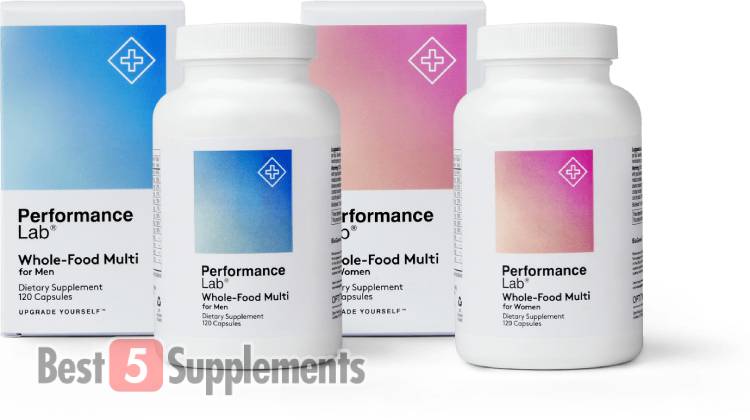
Given that vegan supplements tend to come with healthier manufacturing practices than non-vegan supplements, when we talk about the Best Vegan Multivitamin to Buy in 2020, we may as well be talking about the best multivitamin period.
Odds are there’s no non-vegan multivitamin to beat out the best vegan multivitamin.
And it really does come down to manufacturing practices. Poor, cheap, junky, cutting-the-corners formulation techniques produce not only weaker, harder-to-absorb supplements full of creepy additives but also bio-unfriendly byproducts.
Vegan supplements take pride in supplying formulas that work without compromising other health factors, biologically or environmentally.
But vegan supplements also have a reputation for being more expensive than their non-vegan counterparts.
This is an illusion…
…the really cheap multivitamins are cheap because they’re …well, they’re cheap. And they don’t really do anything.
If they worked, they’d cost as much as the multivitamins that work.
Fortunately, the best vegan multivitamin, the one we get to below, works without busting your wallet. And it works for both vegans and non-vegans.
But why would a vegan be specifically concerned about supplementing a multivitamin?
Table of Contents
Which Nutrients do Vegans Need?
All of them…? What a dumb question.
Except with so much rising anxiety around what’s actually in our food, the question of which nutrients do we need is more and more a legitimate concern.
Because, frankly, it seems that we’re not getting enough of what we need. If anything, we’re getting a bunch of the crap that we don’t need, leaving huge gaps in our nutrient intake profile.
And this all gets both more complicated and simplified when we turn to going vegan or carnivore, or any other diet that focuses on including or excluding a specific food group.
Simplified because we limit our food options.
Complicated because now we have to find different means to consume micronutrients contained in the foods we’ve excluded.
Supplements obviously help with this. Multivitamin supplements specifically help in this department by providing a comprehensive complex of vitamins and minerals. For vegans, this means that multivitamins not only assist with providing all of the same micronutrients that everyone needs but also those that might be missing from the vegan diet.
While there’s certainly variation, a few nutrients that deserve special focus include: Vitamin B12, Vitamin D, Iodine, Heme Iron, Calcium, and Zinc. Not that vegans are exceptionally deficient in any of these, but there does seem to be an increased risk of deficiency in these nutrients among vegans, as compared to your average omnivore. Also, plants are high in alpha-linolenic acid (ALA), an essential omega-3 fatty acid, but long-chain omega-3 fatty acids, such as EPA and DHA, are somewhat harder to come by with a vegan diet.
While it’s smart to add a long-chain omega-3 fatty acid supplement to your vegan diet, vegan-friendly multivitamin supplements may also help keep your vitamin and mineral levels up.

Which is Better: Dietary or Supplementary Micronutrients?
Obviously, if you can maintain your nutrient levels through a well-balanced diet, that’s your best option. I don’t think that’s much of a controversial opinion.
And, yet, a well-balanced diet seems to be hard to come by, due to any number of factors:
- Expense: buying a comprehensive mix of organics is expensive.
- Time: it takes time to meal prep, cook, clean, etc.
- Technology: food processing sucks the nutrients out of foods.
- Trust: plus, how do we know 100% that the food we’re buying is as good as it’s advertised to be?
Ever since Michael Pollan’s The Omnivore’s Dilemma (2006), trust in processed food sources is loooow. And understandably so: there’s no way to know for sure if what we’re eating is actually what it says it is unless we make it and hunt it and process it and cook it ourselves.
And so, unless we’re growing and cooking the food we eat ourselves, a multivitamin supplement does help us keep our nutrient levels up in the face of not really knowing what the hell we’re eating.
This seems doubly true for athletes and bodybuilders and always-on-the-go workers who expend and require more energy than the average folk.
The Best Vegan Multivitamin Supplements to Buy in 2020
Okay, so if you’re worried that you’re not receiving adequate nutrition from your diet, especially a primarily plant-based vegan diet, what then is the best vegan multivitamin to buy in 2020 to get your levels back up?
There are several really good multivitamin supplements available; however, one supplement (that splits into two formulas) is the best vegan multivitamin and that’s Performance Lab Whole-Food Multi, a food-identical multivitamin stack that supplies all of the best vitamins and minerals in bio-enhanced, easy-to-absorb forms.
Nothing more, nothing less.
And, frankly, when it comes to multivitamin replenishment, you don’t want anything more than vitamins and minerals. Absorption is an issue with all multivitamin supplements, whether we’re talking vegan or not. A stack may have all of the right ingredients but fails to deliver them in their right forms—i.e., in forms that the body can even absorb and use.
Adding more ingredients to create a sort of “hybrid” formula design may impair the bio-availability of a stack’s ingredients. By keeping it simple and instead focusing on the quality of its multivitamin ingredients, this multivitamin stack easily qualifies as the best vegan multivitamin supplements.
But let’s take a closer look at its two formulations: the “For Men” version and the “For Women” version.
Performance Lab Whole-Food Multi for Women Supplement Facts
I’m dealing with two formulas here, but, thankfully, there’s substantial overlap between the two. So, in the ingredient list below, I’ll be covering all of the ingredients involved in the For Men and For Women formulations, then follow the list up with an explanation of these formulas’ differences.
With that in mind, let’s see what these vitamins and minerals are all about!
Performance Lab Whole-Food Multi Ingredients
- Vitamin A: this antioxidant vitamin is great for vision, skin, bone health, and the immune system.
- Vitamin C: the anti-scurvy vitamin! This famous antioxidant vitamin helps reduce free radical damages across the brain and body.
- Vitamin D3: commonly deficient during wintertime, vitamin D is the sunlight vitamin that helps with bone health, mood, and testosterone levels.
- Vitamin E: often paired with vitamin C to burn fat, this antioxidant vitamin supports cardiovascular health, hair, skin, nails, and tissue repair.
- Vitamin K1 + K2: this fat-soluble vitamin is important to bone, cardio, and connective tissue health, as well as blood clotting.
- Vitamin B1: or thiamine, somewhat of a nootropic B vitamin that, when bound together as B1-B1, creates sulbutiamine, an anxiolytic cognitive enhancer.
- Vitamin B2: or riboflavin, a B vitamin that’s important to the formation of red blood cells and cell growth. B2 also plays a role in energy metabolism and oxidative stress management.
- Vitamin B3: or niacin, known for giving off the hot “niacin flush” feeling on the skin when taken in PWO form, this vitamin assists with energy metabolism and circulation.
- Vitamin B5: or pantothenic acid, a very common B vitamin that’s involved in the synthesis of coenzyme A (CoA), a cofactor in fatty acid oxidation.
- Vitamin B6: or pyridoxine, another popular nootropic B vitamin that works as a co-factor in the synthesis of mood-related neurotransmitters.
- Vitamin B7: or biotin, a B vitamin best known for its support of hair, skin, and nail health, not to mention energy metabolism, blood sugar levels, and cell growth.
- Vitamin B9: or folic acid, this B vitamin is particularly important to female health due to its role in growth and development.
- Vitamin B12: or cobalamin, a cofactor involved in hundreds of metabolic pathways, making it an incredibly important B vitamin to maintain, especially as age naturally depletes our B12 levels.
- Calcium: taken for bone and joint health, calcium also supports cardiovascular and hormonal health as well.
- Iodine: due to iodine’s involvement in the production of thyroid hormones, iodine-deficiency is visibly noted by an enlarged thyroid gland – i.e., goiter.
- Magnesium: mineral-sweating athletes in particular may benefit their health by adding magnesium to their diet, which helps support sleep quality and muscle relaxation.
- Zinc: everyone needs zinc, however men need more of it due to zinc’s precursor status to testosterone synthesis. Low zinc equals low testosterone.
- Selenium: this antioxidant minerals helps protect the immune system and thyroid health against oxidative damage on the cellular level.
- Copper: smart addition here, given that zinc seems to negatively impact copper levels. This mineral seems to support energy metabolism, nervous system, cardiovascular health, red blood cell formation, visual health, and more.
- Manganese: a mineral cofactor involved in the enzymatic regulation of blood sugar, energy metabolism, and bone health.
- Chromium: by supporting energy expenditure and blood sugar regulation, chromium has become an increasingly popular mineral in fat burner supplements.
- Molybdenum: used for the removal of toxins, namely from sulfur-containing amino acids, molybdenum is a bit of a cleansing compound.
- Strontium: this mineral is heavily concentrated in the bones and, like calcium, assists with bone and joint health.
- Inositol: supporting the nervous system, skin health, and mood, inositol is somewhat of an anxiolytic (anti-anxiety) that may assist with sleep quality and relaxation.
- Vanadium: this mineral helps regulate blood sugar levels, cardio health, bone health, muscular function, and growth factor activity.
- Boron: this is an important mineral for men’s health due to boron’s help in regulating the testosterone:estrogen ratio in testosterone’s favor.

For Men vs. For Women: What’s the Difference?
For the most part, the Performance Lab Whole-Food Multi for Men and the for Women formulations are the same with exception to a few gender-specific differences. On that note, will it absolutely kill you to take the wrong formula? No. But the few differences do acknowledge a few differences in particular needs.
Briefly, here are the differences between these multivitamins:
- Vitamin B1: For Men (8mg), For Women (4mg)
- Vitamin B9: For Men (400mcg), For Women (800mcg)
- Calcium: For Men (18mg), For Women (21mg)
- Iron: For Women Only (8mg)
- Magnesium: For Men (17mg), For Women (21mg)
- Zinc: For Men (22.5mg), For Women (10mg)
- Boron: For Men (4mg), For Women (1mg)
These small changes address gender-specific concerns – e.g., the “For Women” iron replenishes the natural iron lost via bleeding, whereas the additional “For Men” zinc promotes testosterone synthesis.
However, aside from these formula differences, the rest remains the same: the same Plantcaps® capsules and the same price options.
What About the “Other Ingredients”?
Well, here’s the cool thing about the “Other Ingredients” of these formulas: there’s only one other ingredient.
And it’s the capsule: the vegan, non-GMO, eco-friendly Plantcaps® capsules that are constructed not out of boiled animal leftovers (i.e., gelatin) but fermented tapioca (pullulan).
This is why, whether you’re vegan or not, it’s best practice to opt for vegan supplements, as they tend to come with cleaner (or no) additives and manufacturing practices.
In other words, what’s missing in these multivitamin supplements are the capsule-space-wasting fillers, the manufacturing lubricants, the animal byproducts, the unnecessary colorants, and artificial flavors.
And it’s great that these things are missing because they’re fricking ew.
Who Should Take a Vegan Multivitamin Supplement?
Generally speaking, multivitamin supplements aren’t exactly intended for performance enhancement but rather nutrient replenishment.
Whereas, say, nootropics and pre-workout supplements target specific performance measures to boost, multivitamins (good ones, at least) supply the micronutrients required for, well… damn near everything your body does.
With that in mind, multivitamin supplements work for everyone, because everyone needs their micronutrients—and increasingly so with today’s food processing methods sucking our diets dry of vitamins and minerals. We’re in a weird state where we can simultaneously be well-fed and malnourished, or deficient in certain vitamins and minerals.
And don’t get hung-up on the “vegan” modifier here: vegans and non-vegans can (and, really, should) take a vegan multivitamin, given that vegan supplements tend to be cleaner than many of their non-vegan counterparts.
Vegan multivitamin supplements are for everyone: athletes and academics, bodybuilders and tech-nerds.
How to Take Performance Lab Whole-Food Multi?
The Suggested Use directions for Performance Lab Whole-Food Multi advise:
“Take 4 capsules daily. Best taken as 2 capsules, twice per day. Take with or without food. For men and women seeking additional nutritional reinforcement, up to 6 capsules daily may be taken.”
I usually take Performance Lab Whole-Food Multi (for Men) first thing in the morning and then, admittedly, whenever I remember to take it in the evening. 2 capsules in the AM, 2 capsules in the PM—simple as that. I don’t think it really matters if you take it with food or not, so whatever works with you (and your IF schedule, if you’re intermittent fasting).
Do multivitamin supplements interfere with intermittent fasting (IF)?
Speaking of intermittent fasting, one of the more frequently asked questions with multivitamins: do they interfere with intermittent fasting, namely if you take a serving during the fasted period?
There’s no clear, black-white answer here.
While supplements like BCAAs, which raise your insulin and interrupt ketosis, are viewed as a no-go during the fasted period, multivitamins seem mostly fine. Although, minerals like chromium and vanadium may drop blood sugar levels to uncomfortable levels if taken while fasting.
My advice: if you’re worried about it, take 2 capsules at the start of the feed period and then the other 2 capsules towards the end of the feed period. That should be fine.

The Total Brain-Body Performance Lab Stack
A multivitamin supplement is an awesome starting point into the world of health enhancement.
In fact, it may even help improve the results of any additional supplements by providing a solid, nutritious foundation for other stacks to build upon. What’s great about Performance Lab is how you can mix-and-match any supplement combination to meet your particularly health goals.
For total brain-body performance, the following stack of stacks works:
- Performance Lab Whole-Food Multi: comprehensive micronutrient coverage sold as two different formulations: For Men and For Women—each supplying all of the necessary nutrients for all of your biological processes to run smoothly and effectively. Read our Performance Lab Whole-Food Multi Review.
- Performance Lab Mind: a nootropic brain booster stack that provides a solid foundation for short- and long-term mental performance enhancement, improving cholinergic brain activity, stress resistance, mood levels, cerebral circulation, and more. Read our Performance Lab Mind Review.
- Performance Lab SPORT: the SPORT line of Performance Lab supplements offers many various supplements, including a Pre-Workout stack (link here), a Post-Workout stack (link here), a BCAA stack (link here), and more for athletic health enhancement.
Of course, this isn’t a totally total body stack. What about eye health? And metabolic fat loss? And energy levels? Performance Lab also covers the more specific areas of health enhancement with many other supplement stacks that pair well with their multivitamin stack. (And that are, yes, all vegan, too.)
Final Thoughts
With all of your micronutrients covered, what more do you really need? Well, I suppose that’s a question for you to figure out for yourself. What are your health goals? Your exercise goals? Your professional goals?
Do you even want to exercise and have a profession??
Well, maybe not, but not too many people do. (That is until they start exercising and working and realize that, actually, it feels good to feel good, and it’s nice having a daily purpose.) However, with a firm multivitamin foundation, other performance enhancing supplements may work better, giving you better, more competitive results to enjoy in the gym, workplace, bedroom, etc., etc.
Not all multivitamin supplements are equal. Hence why we’re only covering the best vegan multivitamin that money can buy: Performance Lab Whole-Food Multi. Consider this stack as a model example of what to look for in a multivitamin stack when you’re looking for a multivitamin stack.
Or, just go to the product’s web page to learn more about what’s in this stack, how it works, and any other questions you might have. To learn more, click here.

Leave a Reply